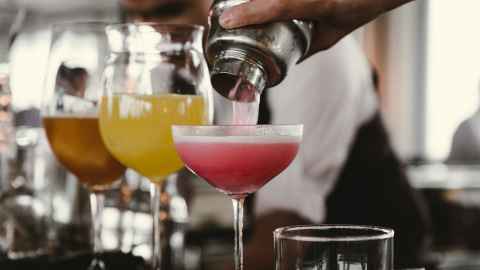The wild west of alcohol lobbying
8 July 2025
Opinion: The cosy relationship between the alcohol industry and politicians extends to how the alcohol levy fund is administered, argues Peter Adams.

The “way too friendly” relationships between Ministry of Health officials and the liquor industry recently reported on by RNZ’s investigative journalist Guyon Espiner has drawn attention to ongoing concerns about the extent to which industries can influence policy makers in New Zealand.
Unlike many comparable countries we have put little in place to constrain the activities of industry lobbyists, we have no register of their activities, no mandatory code of conduct and no clear accountability. Similarly, we manage industry conflicts of interest poorly with unrestrained “revolving door” morphing of politicians into lobbyists and vice versa.
Another problem rarely talked about is how the alcohol industry influences our alcohol levy.
This is a $16 million fund levied each year from alcohol sales which the government then earmarks for projects seeking to reduce harm from alcohol. New Zealand is only one of a few countries who have adopted such harm-reduction levies, but we’ve had one for alcohol for over 40 years. (We’ve also had one for gambling for over 20 years.)
Espiner described how Ross Bell, a manager in the Ministry of Health’s Public Health Agency, shared the alcohol levy investment framework (an internal document) with a wine and beer lobbyist, and how industry representatives had made a pitch for government to “partner with industry” in deciding how the levy would be spent on reducing alcohol harm.
You could argue it makes sense that those associated with causing harm to a community would contribute to rectifying the damage they cause. When a neighbour’s large tree falls across and damages my property, I would expect them to contribute in some way to cleaning up the mess.
This explicit or implicit sense of it being ‘their hard-earned money’ permeates every aspect of how the levy is deployed ... These harm-reduction initiatives need their support, so they should have a say in how these levies (their profits) are used.
Given how much damage alcohol does – to bodies, minds, and communities – it would be reasonable to expect those who profit from it to allocate some of their considerable earnings to alleviating some of the damage caused by their profiteering, as I acknowledged in my article published in the Journal of Studies on Alcohol and Drugs.
However, all is rarely as it seems. I’ve been involved with the harm-reduction levies for alcohol and gambling for decades and that experience has convinced me that such levies provide a way for industry to further their influence with politicians and in a way that in effect blocks effective public policy on reducing alcohol consumption.
In effect harm reduction levies sustain the links between industry and politicians, between the source (corporate enterprise) and the recipient (public good services). Those links come with a tangle of influences that I’d argue enable industry actors to promote public health initiatives that have minimal impacts on profits, while pretending to make a difference.
The ministry’s recent behind-the-scenes consultation with the alcohol industry about plans for the alcohol levy and the industry’s offer to help them spend it, as reported by Espiner, illustrates the ethically questionable activities associated with such levies.
During informal conversations with industry executives, I have heard them speak repeatedly of these levies coming from “our hard-earned money”. Though this claim is unlikely to be aired in public, it highlights an important point: industry’s belief that the size of a harm reduction levy depends on how alcohol providers manage their business, including the way they handle their finances, production, distribution, marketing and sales.
This explicit or implicit sense of it being ‘their hard-earned money’ permeates every aspect of how the levy is deployed. The levies are drawn from profits derived from their enterprise, their time and money. These harm-reduction initiatives need their support, so they should have a say in how these levies (their profits) are used.
This wouldn’t be a problem if it were not for the background network of informal relationships between the alcohol industry and politicians. Both parties know each other, they interact regularly, and they engage formally and informally in discussing policy options. During these interactions, political actors pick up on the industry’s sense of ownership and act accordingly.
We need to untangle and tidy up issues of undue influence and conflicts of interest in the sway alcohol industry actors have with policy makers. It may seem counter-intuitive, but the phasing out of harm-reduction levies will reduce this influence alongside other crucial measures such as controls on lobbying and the establishing of some form of integrity monitoring body.
Peter Adams is a professor in the School of Population Health and associate director in Centre for Addiction Research
This article reflects the opinion of the author and not necessarily the views of Waipapa Taumata Rau University of Auckland.
This article was first published on Newsroom, Alcohol lobbying is a wild west of influencedate, 8 July, 2025
Media contact
Margo White I Research communications editor
Mob 021 926 408
Email margo.white@auckland.ac.nz